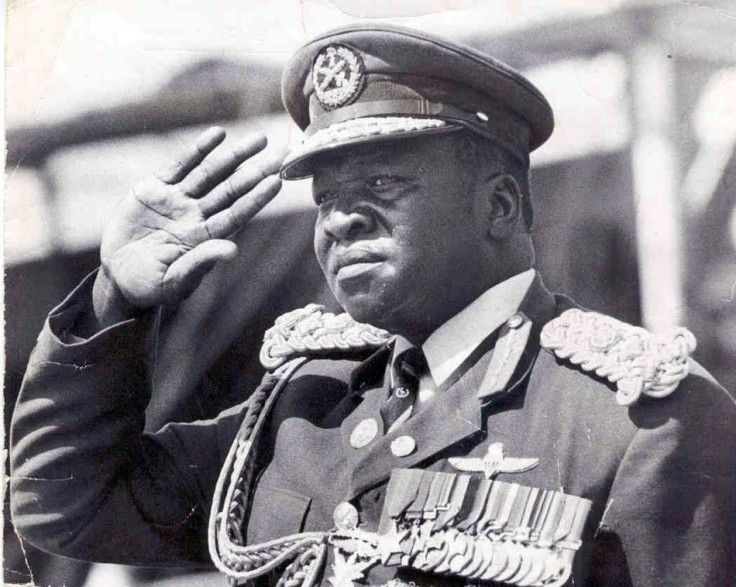Libya: A Sub-Saharan Viewpoint

Makwaia wa Kuhenga writing for Tanzania's leading English language newspaper, The Citizen, on Sunday 17 April 2011, tells us he witnessed the Libyan troops of Colonel Qaddafi being mowed down, scores of them being buried and the rest rounded up and returned home. This was during a little known war in October 1978, now almost forgotten in the West, when Colonel Qaddafi gave military support to General Idi Amin of Uganda on his invasion and annexation of the Kagera salient in Tanzania.
The military aid given by Libya included thousands of troops and sophisticated military hardware to "beat back the enemies of Islam". The Uganda-Tanzania War lasted a year and ended on 11 April 1979 with the toppling of Idi Amin and his flight to Saudi Arabia.
Mr Kuhenga's article has been written to highlight the marked differences between the help given to Tanzania by the Western powers then: none; and the enormous effort being expended now by Britain, France and the United States in particular, in their attempt to dislodge Qaddafi, fighting an internal uprising.
Omitted from the article is much assumed knowledge of The Citizen's East Africa readership but for others here's some "flesh on the bones" regarding Idi Amin's reign of terror.
Idi Amin became the third President of Uganda on 25 January 1971, overthrowing Milton Obote. Until Amin's fall from power on 11 April 1979, his regime killed between 100,000 - the most conservative estimate - and - according to a report Amnesty International helped compile - 500,000 people. He also evicted most of Uganda's 80,000 strong Asian community.
Former Tanzanian President, Julius Nyerere once described Amin as "a murderer, a liar and a savage" and Patrick Keatley's obituary of the dictator in the Guardian on 18 August 2003 stated: "His rule of Uganda became a synonym for barbarity."
Mr Keatley's report gives an early and stark example of Amin's extreme cruelty:
"The first sign of his sadism came after the fatal decision to make him a commissioned officer in 1962, commanding troops of the 4th KAR (King's African Rifles) he carried out the Turkana Massacre, an operation that began as a simple assignment to check cattle rustling by tribesmen in the Turkana region of Kenya. Complaints from villagers reached the British authorities in Nairobi, bodies were exhumed from pits and it became clear that the victims had been tortured, beaten to death and, in some cases buried alive.
"But Amin was lucky. The British authorities in Kampala, with Uganda's independence only months away. decided it was politically impossible to court-martial one of the country's only two black officers. The man who was later to be toppled by Amin, Dr Milton Obote, concurred."
Supporting Idi Amin on more than one occasion with troops and military equipment was Colonel Qaddafi. Less well known was the help given this loathsome dictator and his henchmen by the Soviet Union and East Germany. Amin's approaches to other Islamic countries - he was a Muslim - such as Jordan, Syria and Iraq, were rebuffed.
Mr Kuhenga's Citizen article makes very clear that no western power rushed to aid Tanzania against "the full might of Libyan armed forces..." as Colonel Qaddafi's ultimatum to Tanzania read. Qaddafi's troops along with Amin's were defeated by the Tanzania People's Defence Force aided by Ugandan exiles who had formed the Uganda National Liberation Army
After Tanzanian and UNLA forces took Kampala, Idi Amin fled to Tripoli and shortly afterwards to the sanctuary given him by the Saudi royal family. Brian Barron in an item for BBC News on 16 August 2003, wrote: "The Saudis had been staunch allies because Idi Amin was a Muslim convert who ordered mosques built across Uganda when he was in power."
Along with a comfortable home in Jeddah, which he shared with one of his wives and several children, he had many cars for his personal use, Saudi government bodyguards and a generous pension. Mr Barron on concluding his recollections of Idi Amin, named other African leaders who had 'gone wrong' and ended by saying: "Despite Amin's crimes against humanity, he escaped justice for one reason only: the Saudi authorities shielded one of the monsters of our time."
Mr Kuhenga appears to suggest to The Citizen's readership that unless there's a great deal of an important resource like oil, a similar regime to Amin's could arise with little or nothing being done by the West to protect innocent civilians. He writes: "Whereas Tanzania has been ready to forgive the Gaddafi stance...western powers never forgive a Third World leader who is independent(ly) minded...
"...there is also the factor of double standards on the part of western powers. The current scenario in the Arab world is a case in point. Western powers have not imposed and do not contemplate imposing 'no fly-zones' in other...countries in the Gulf and Middle East now engulfed in uprisings and similar cases of state brutality against civilians."
Publicly for the moment, the leaders of the USA, France and Britain will no doubt want to assure us all that Mr Kuhenga's cynicism is quite unjustified. With the demise of Colonel Qaddafi not being as clinically surgical as was likely planned or hoped, any similar adventures in the future could well falter for lack of willing participants, not to mention a more hostile reception at the UN. I don't agree with all that Mr Kuhenga wrote, but there's no doubt his article would strike a chord with much of world opinion.
© Copyright IBTimes 2025. All rights reserved.





















